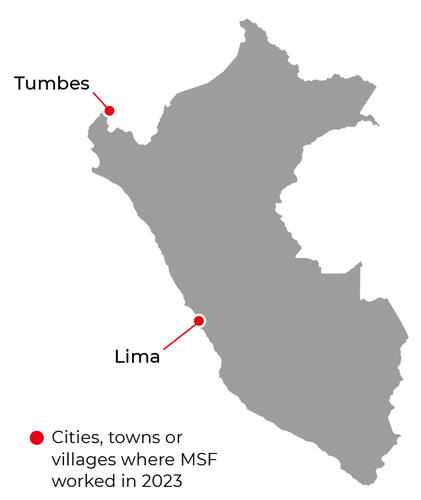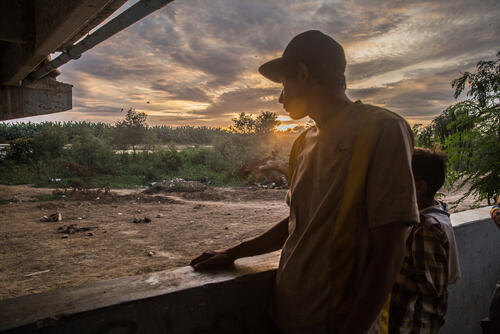As in previous years, most of the patients seen by our teams in Tumbes, the northern region bordering Ecuador, were Venezuelans who have settled there after travelling for weeks or even months, often on foot, to flee poverty, unrest and political instability in their home country. Peru hosts the second-largest number of Venezuelan migrants and refugees in the world, with over 1.5 million living there by the end of 2023.*
Many patients were exposed to violence during their journeys, including robberies and sexual assault, and had little access to food or water for long stretches of time. In Peru, they continue to live in precarious, unhygienic conditions, often facing exclusion from medical care due to their irregular administrative status. The services we ran in Tumbes included general healthcare, sexual and reproductive healthcare, mental health support, emergency referrals to hospitals, and treatment for chronic diseases. We offered these same services to migrants from other Latin American countries, as well as to the local community.
From December 2022, political protests swept the country following the ousting of President Pedro Castillo, triggering a violent response from the army and the police, during which dozens of people were killed and over 1,200 were wounded. Our team in Lima immediately launched emergency activities on multiple occasions during the following months, providing first aid and psychological support to people suffering from exposure to tear gas, pellet wounds, contusions or mental distress.
At the end of the year, we decided to end our operations in Peru in early 2024, due to resource-related challenges, and to enable us to respond to acute needs elsewhere in the world.
*UNHCR, https://reporting.unhcr.org/operational/operations/peru





